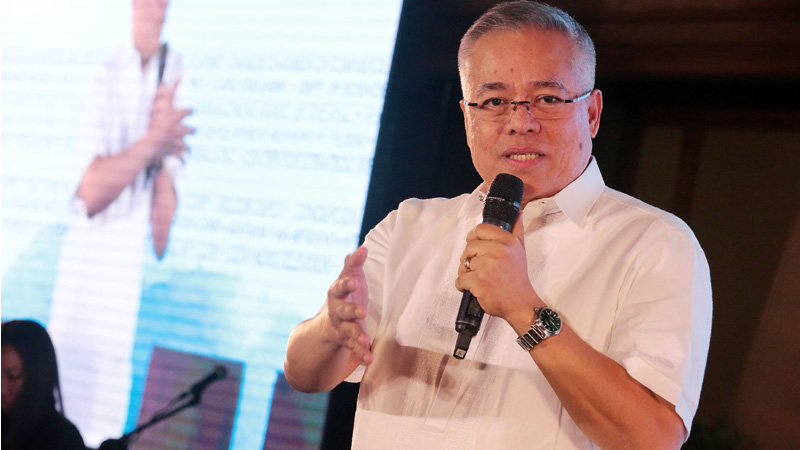PH-US Trade deal hangs as Trump crisis worsens

Trade and Industry Secretary Ramon Lopez (File photo by GRIG C. MONTEGRANDE / Philippine Daily Inquirer)
The political uncertainty surrounding Trump’s presidency might eventually affect the bid to pursue a free trade deal between the US and the Philippines, a top official said.
Trade and Industry Secretary Ramon Lopez told reporters last week that part of the reason behind the exploratory talks for the free trade agreement (FTA) was prompted by the Trump administration.
However, recent events have cast a shadow of uncertainty over Trump’s presidency after members of his inner circle were implicated for crimes that may be linked to the US president.
While impeachment is still a question left up in the air, Trump warned that this would lead to crash of the US stock market, a claim that not many agree on.
Lopez was asked if the current exploratory talks—which aim to see how mutually strategic an FTA is—would be affected by the political events abroad.
“On that question, I would say it might. The speed of the discussion in the FTA is triggered also by the administration of Trump because of the good relationship between the two leaders (Trump and President Duterte),” he said.
It remains to be seen if the political uncertainty abroad could derail the exploratory talks, which Lopez himself called a “vote of trust and confidence.”
Trump was responsible for the US shift from multilateral deals to bilateral FTAs, even if this meant killing the proposed regional trade deal called the Trans-Pacific Partnership pursued under the Obama administration.
The bilateral route became an opportunity for the Philippines as hopes remain high that the new strategy would eventually bear fruit in the form of an FTA.
Nevertheless, Lopez said that the reason to pursue formal FTA negotiations was more economic than political. He said only “30 percent” of the reason was due to political factors.
The Philippines has a trade preferential scheme with the world’s biggest economy that allows the country to send a huge chunk of its products duty-free into the US market.
Called the US General System of Preferences (GSP) scheme, this arrangement will be replaced by an FTA, assuming the talks prosper to an actual agreement.
Lopez said that an FTA would be better because it would comparatively be “more encompassing” and “long term” compared to the US GSP, which is subject to renewal by US lawmakers.
